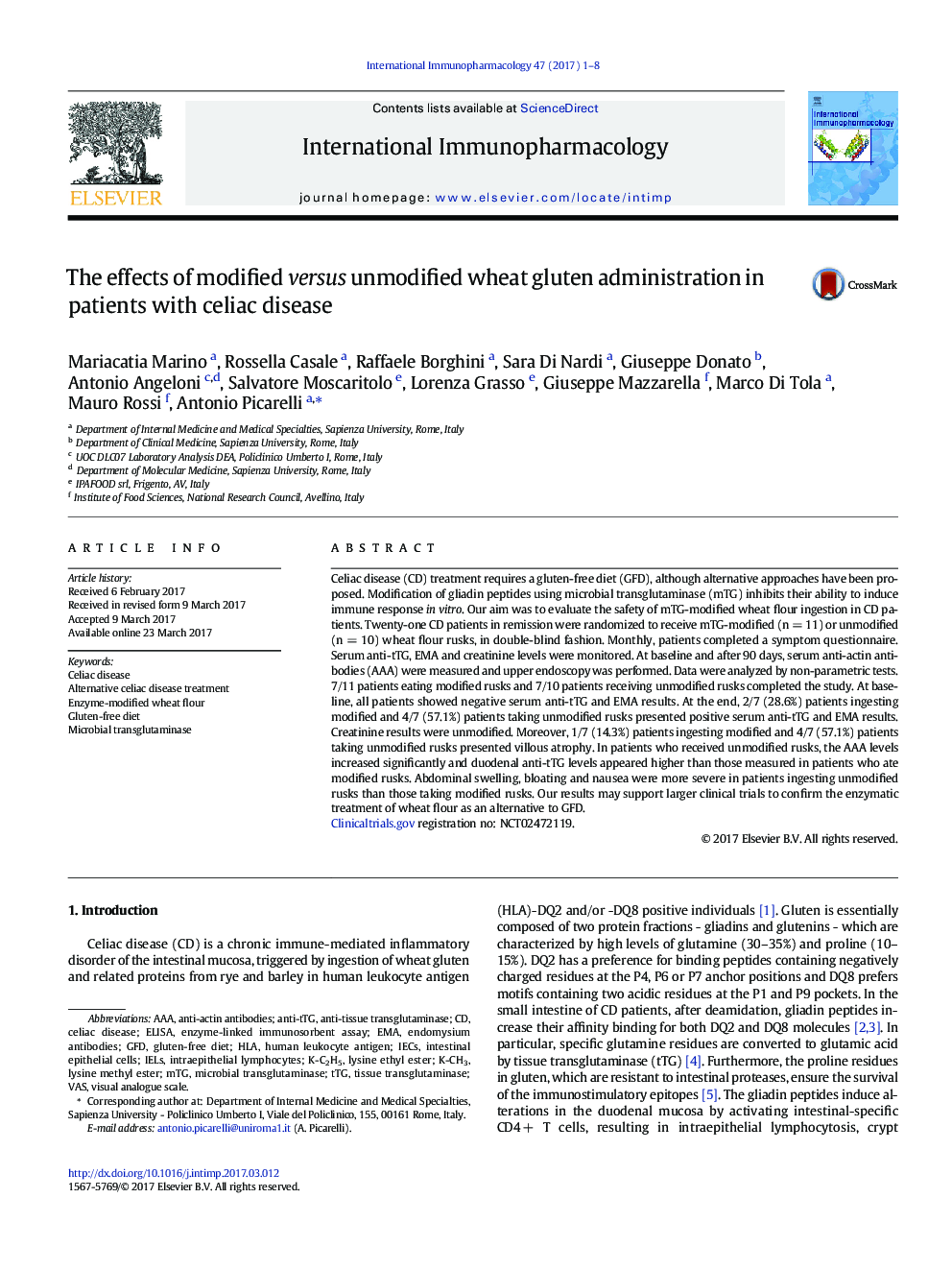| کد مقاله | کد نشریه | سال انتشار | مقاله انگلیسی | نسخه تمام متن |
|---|---|---|---|---|
| 5555488 | 1559743 | 2017 | 8 صفحه PDF | دانلود رایگان |
- mTG, in presence of K-C2H5, is able to modify gliadin peptides.
- mTG-modified gliadin peptides inhibit in vitro the CD-specific immune response.
- Disease activity is reduced in CD patients eating mTG-modified wheat flour rusks.
- mTG-modified wheat flour foods may be an alternative strategy for CD treatment.
Celiac disease (CD) treatment requires a gluten-free diet (GFD), although alternative approaches have been proposed. Modification of gliadin peptides using microbial transglutaminase (mTG) inhibits their ability to induce immune response in vitro. Our aim was to evaluate the safety of mTG-modified wheat flour ingestion in CD patients. Twenty-one CD patients in remission were randomized to receive mTG-modified (n = 11) or unmodified (n = 10) wheat flour rusks, in double-blind fashion. Monthly, patients completed a symptom questionnaire. Serum anti-tTG, EMA and creatinine levels were monitored. At baseline and after 90 days, serum anti-actin antibodies (AAA) were measured and upper endoscopy was performed. Data were analyzed by non-parametric tests. 7/11 patients eating modified rusks and 7/10 patients receiving unmodified rusks completed the study. At baseline, all patients showed negative serum anti-tTG and EMA results. At the end, 2/7 (28.6%) patients ingesting modified and 4/7 (57.1%) patients taking unmodified rusks presented positive serum anti-tTG and EMA results. Creatinine results were unmodified. Moreover, 1/7 (14.3%) patients ingesting modified and 4/7 (57.1%) patients taking unmodified rusks presented villous atrophy. In patients who received unmodified rusks, the AAA levels increased significantly and duodenal anti-tTG levels appeared higher than those measured in patients who ate modified rusks. Abdominal swelling, bloating and nausea were more severe in patients ingesting unmodified rusks than those taking modified rusks. Our results may support larger clinical trials to confirm the enzymatic treatment of wheat flour as an alternative to GFD.Clinicaltrials.gov registration no: NCT02472119.
Journal: International Immunopharmacology - Volume 47, June 2017, Pages 1-8
